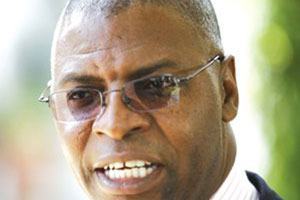
PRESIDENT Robert Mugabe has tightened his grip on power ahead of the watershed election next year by assigning some crucial Acts directly under the purview of his office.
Report by Ndamu Sandu
He did this without consulting his coalition partners Prime Minister Morgan Tsvangirai and MDC leader Welshman Ncube.
The country is set to go to the polls next year to bring to an end the shaky inclusive government that has run its course despite bringing a modicum of economic stability.
In a Statutory Instrument gazetted on Friday, Mugabe put nine pieces of legislation under the Office of the President and Cabinet without the knowledge of coalition partners. Mugabe’s political adversaries yesterday said the move was designed to tighten the 88-year-old leader’s grip on power.
The Acts now directly under Mugabe are the Commission of Inquiry Act, Emergency Powers Act, Honours and Awards Act, Interception of Communication Act, Presidential Powers (Temporary Measures) Act, Procurement Act, Radiation Protection Act, Research Act and the Zimbabwe National Security Council Act.
The notice reads: “It is hereby notified that His Excellency and the President, in terms of section 31D (1) (a) of the Constitution as read with section 37 (2) of the Interpretation Act has assigned to the Office of President and Cabinet — (a) the administration of the Acts set out in the schedule and (b) the functions conferred or imposed on the Office of the President and Cabinet, save to the extent that those functions have not been assigned to some other minister.”
The notice said the assignment and functions published in a Statutory Instrument of 2010 had been repealed.
- Chamisa under fire over US$120K donation
- Mavhunga puts DeMbare into Chibuku quarterfinals
- Pension funds bet on Cabora Bassa oilfields
- Councils defy govt fire tender directive
Keep Reading
MDC-T secretary general, Tendai Biti, told The Standard yesterday that the move was proof that Mugabe was consolidating his grip on Central Intelligence Organisation (CIO) and furthering his power retention agenda ahead of elections.
He said placing the Interception of Communication Act in the President’s Office would enable Mugabe to eavesdrop on the activities of his political foes at will.
“Interception of Communication was never in the Office of President. The Procurement Act was traditionally under the ministry of finance and this is a power retention agenda,” Biti said.
Biti said the MDC-T would meet tomorrow to discuss on the latest assignment of functions and make appropriate decisions.
Ncube, told The Standard yesterday that while it was the prerogative of President Mugabe to assign functions, “If you are working in an inclusive government, powers are exercised in consultation with others”.
He said the existence of these Acts in the Office of the President was calculated to give Mugabe electoral advantage ahead of next year’s elections.
“One can see the intention as we go towards elections that they want to gather in one office for the purpose of electoral advantage. They want to misuse the Acts, in particular, the Interception of Communication Act,” Ncube said.
The Zimbabwe National Security Act oversees the National Security Council (NSC) that is mandated to discuss key security issues. The NSC is chaired by Mugabe and has never met since May this year amid revelations that security chiefs are holding meetings behind the back of premier, Morgan Tsvangirai.
The NSC Act stipulates that the body should meet every month to receive reports and discuss key security issues.
Mugabe chairs the council that has Tsvangirai and the two vice-presidents — Joice Mujuru and John Nkomo.
The two deputy premiers, Arthur Mutambara and Thokozani Khupe, ministers responsible for Finance, Defence and Police, service chiefs and one minister nominated by each of the three political parties in the inclusive government are part of the NSC.
How Mugabe has used presidential powers before
Mugabe has in the past used Emergency Powers to his advantage.
In 2008, President Mugabe used the powers to reverse changes made by the Electoral Laws Amendment Act that would have removed police from polling stations.
The amendments had been agreed by the three parties and signed into law by Mugabe himself.
The changes that Mugabe made via a Statutory Instrument, allowed the police access to polling stations to assist the “infirm and illiterate voters”.









